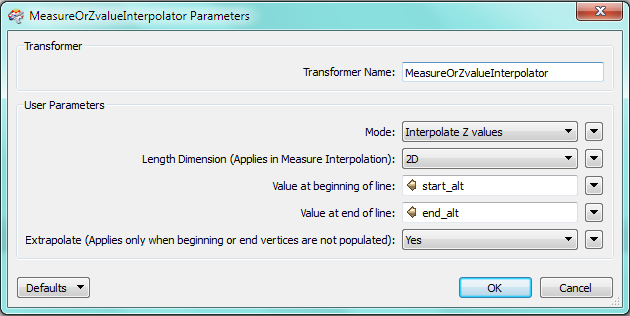There is nothing in the datasets attributes that indicates wich is the beginning or the end of the polyline but looking at the datasets geometry for each polyline in the Data Inspector shows that the order of the including points follows the drawingorder in ArcGIS
I cannot find a way that could count the number of points in the geometry of the polyline or a way to assign the z-values.
Is this doable?






